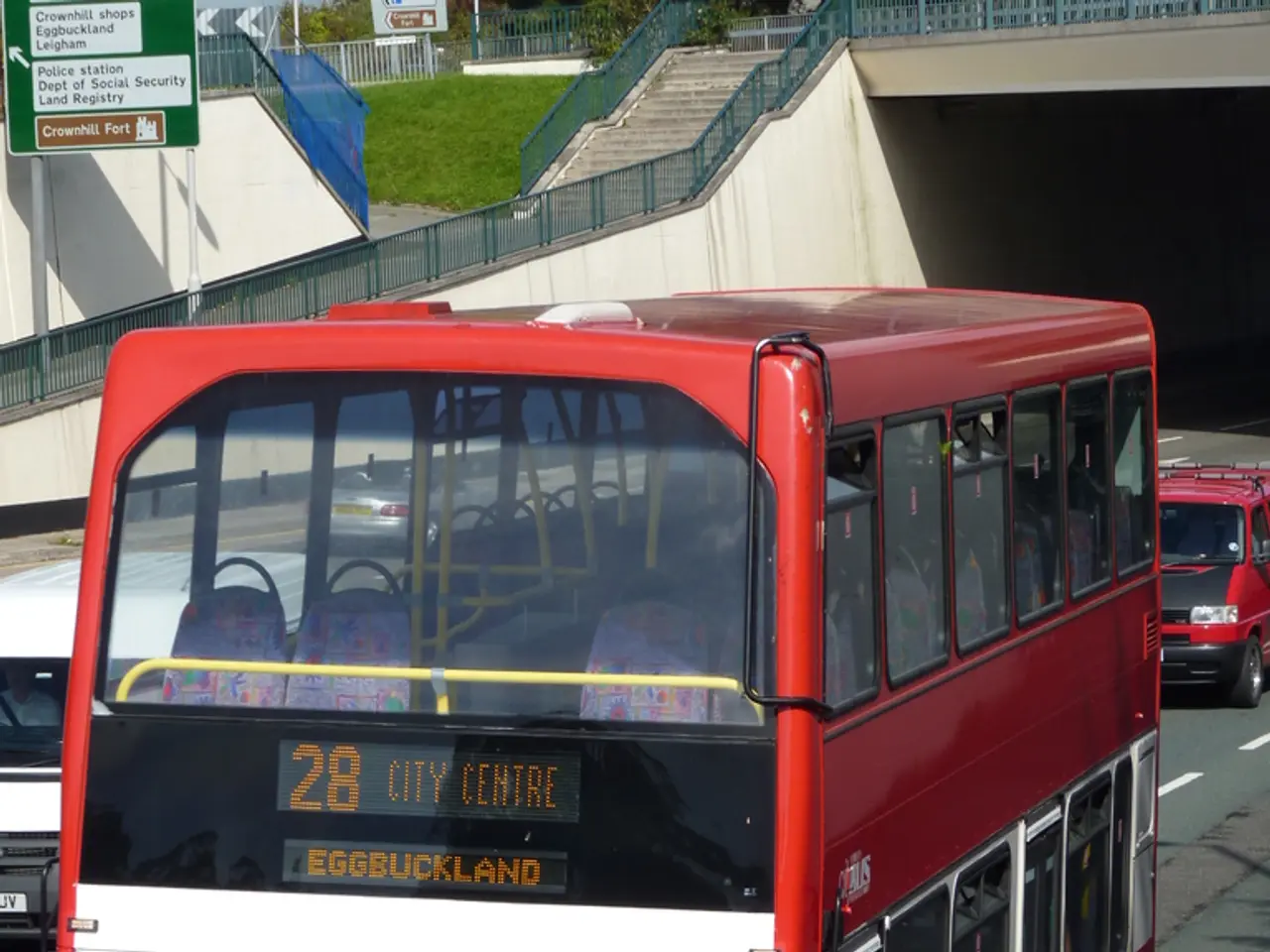Airbus's aims for carbon reduction have been verified by the Science Based Targets Initiative (SBTi)
Airbus, a leading aerospace company, has received approval from the Science Based Targets initiative (SBTi) for its ambitious plan to reduce greenhouse gas (GHG) emissions across its operations. The approval, granted on February 16, 2023, underscores Airbus' commitment to leading the decarbonisation of the aerospace sector.
Guillaume Faury, Airbus CEO, reiterated the company's dedication to achieving climate targets while maintaining aviation's essential role in society. Faury also emphasized Airbus' intention to invest in solutions that will help decarbonise the industry.
The SBTi-approved plan involves a comprehensive approach to reducing emissions across Scope 1, 2, and 3. Key elements of Airbus' strategy include:
- Scope 1 and 2 emissions reduction: Airbus aims for a 63% net reduction in Scope 1 and 2 GHG emissions by 2030 compared to 2015 baseline levels. This includes a 20% reduction in energy consumption by 2030, driven by programs like high5 , which targets environmental footprint reduction through lower energy and water use, waste, VOC, and CO2e emissions in its industrial operations worldwide.
- Scope 3 emissions management: For its indirect emissions (Scope 3), Airbus tackles emissions primarily related to business air travel by fully compensating these emissions at the corporate level. The broader Scope 3 targets relate to the lifecycle emissions of sold products (aircraft operations), which Airbus addresses through the renewal of aircraft fleet technologies and development of more sustainable products and fuels.
- Technology innovation: Airbus is actively developing and testing technologies to drastically reduce emissions from its products. Notable projects include the Airbus C295 Flight Test Bed #2 demonstrator, which integrated new propulsion, aerodynamics, and materials technologies, resulting in estimated reductions of up to 43% in CO2 emissions and 70% NOx emissions during typical missions.
- Advanced tools and AI: Airbus incorporates AI and digital innovations to optimize operations and aircraft efficiency, aiming at fuel savings and CO2 reductions in flight operations.
- Industry collaboration and long-term targets: Airbus supports the wider aviation goal of net-zero carbon emissions by 2050. This involves adopting alternative fuels like sustainable aviation fuels (SAF), advancing new aircraft concepts, and improving operational efficiencies across the value chain.
Airbus's plan is in line with a 1.5°C pathway and is consistent with the Paris Agreement goals. The SBTi, a partnership between CDP, the United Nations Global Compact, World Resources Institute (WRI) and the World Wide Fund for Nature (WWF), helps companies set emissions-reduction targets in line with climate science. Over 4,000 companies worldwide have joined the SBTi since its inception in 2015.
Airbus's Scope 1 and 2 ambition can be found by clicking this link, while its Scope 3 Disclosure information can be found by clicking this other link.
[1] Airbus (2023). Airbus C295 Flight Test Bed #2 demonstrator. [Online]. Available: https://www.airbus.com/newsroom/press-releases/en/2023/02/airbus-c295-flight-test-bed-2-demonstrator.html
[2] Airbus (2022). Airbus commits to defining science-based targets for its entire set of emissions. [Online]. Available: https://www.airbus.com/newsroom/press-releases/en/2022/09/airbus-commits-to-defining-science-based-targets-for-its-entire-set-of-emissions.html
[3] Airbus (2022). Airbus and Lufthansa Technik join forces to develop AI-enabled systems for fuel savings and CO2 reductions. [Online]. Available: https://www.airbus.com/newsroom/press-releases/en/2022/04/airbus-and-lufthansa-technik-join-forces-to-develop-ai-enabled-systems-for-fuel-savings-and-co2-reductions.html
[4] Airbus (2022). Airbus announces its ambition to reduce greenhouse gas emissions intensity generated by its commercial aircraft in service (Scope 3 - Use of Sold Product) by 46% by 2035. [Online]. Available: https://www.airbus.com/newsroom/press-releases/en/2022/03/airbus-announces-its-ambition-to-reduce-greenhouse-gas-emissions-intensity-generated-by-its-commercial-aircraft-in-service-scope-3--use-of-sold-product--by-46-by-2035.html
- Airbus' ambitious plan to reduce greenhouse gas emissions, as approved by the Science Based Targets initiative (SBTi), aims not only at cutting its direct and indirect emissions (science) but also at innovating technologies and collaborating with the industry to achieve a net-zero carbon economy by 2050, aligning with the Paris Agreement goals.
- In order to reduce scope 1 and 2 emissions by 63% by 2030, Airbus plans to implement programs like high5, which seeks to lower energy and water use, waste, VOC, and CO2e emissions in its industrial operations, thus minimizing its environmental footprint (environmental-science).
- Airbus' efforts to address climate-change extend beyond its own operations, as it invests in solutions like renewal of aircraft fleet technologies and development of more sustainable products and fuels (finance, energy), contributing to the decarbonization of the aviation industry.




